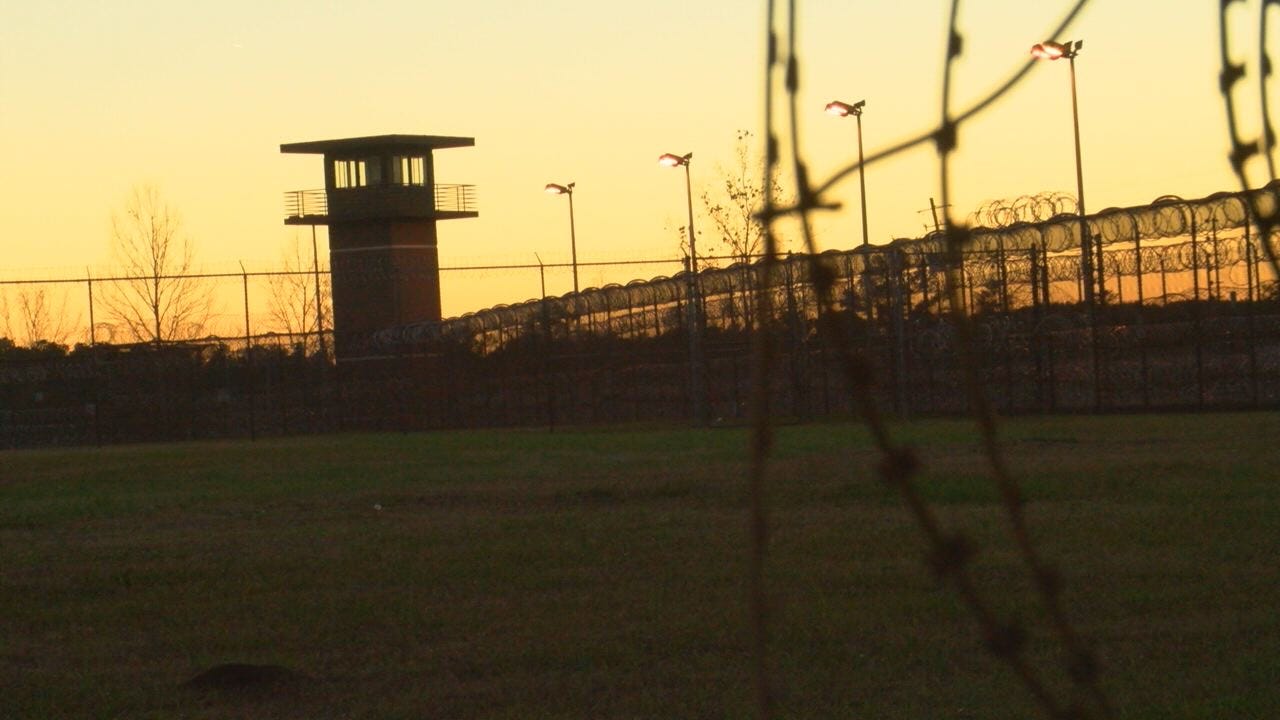This is a guest column written by Richard Corey Fox, who is incarcerated inside Donaldson prison.
On the evening of December 4th, 2022, I happened to walk outside in front of my dorm to speak to someone. It was around 8:30 p.m., drizzly rain in the air and no idea that my life was about to change drastically, not to mention put terror into my poor mother’s heart. As I walked down the ramp then cut across a patch of cement in the direction of my destination, I failed to see a spot on the concrete that was not secure to walk on, however my left foot found it with no problem. So with a slip, a crunch, and a hard impact on my left side, I ended up with my ankle broken in three places, all in a couple of seconds.
My friends quickly loaded me into a wheelchair and rushed me to the infirmary. Once evaluated, I was taken to the back gate, placed in a van, then carried away to the free world hospital. This all might seem like the normal course of action following a traumatic injury inside a prison. But this is where the flawed policy raises its ugly head. See, once inmates leave the confines of an Alabama institution, all information on them goes into a black hole.
For certain security reasons, I fully understand this. When we’re outside the institution, we can’t call our families, and they can’t come see us, nor can they know where we’ve been taken. This policy is in place to prevent escape, and for the safety of the officer, as well as the inmate. But this is where the flaw comes in: they also withhold the information on the incident itself.
When I left the institution and was carried to the free world hospital, I remained there for eleven days. During that time, I went through two surgeries on my ankle, all while my family nor my friends had any clue of what was happening to me. I’m one who calls home regularly at a designated time. And once I started missing those calls, my family became concerned. And so in their concern they started calling the institution. This was the only information provided. “Your son is in the hospital, but he’s still alive.”
Alabama’s prison system is considered one of the worst, if not the worst, in the nation, declared unconstitutional by the Department of Justice. And Donaldson, where I am currently housed, is one of the deadliest in the country. So when a mother hears the words, ‘He’s in the hospital, but alive’, it opens the imagination to every horrific scenario that a parent can think of. I broke my ankle in a freak accident. People do this all the time. Hell, my mom's sister has literally done it twice in the last two years. But for eleven days, my 75-year old mother could only imagine the traumatic torture I may have gone through to be “in the hospital, but alive,” just because of a simple flaw in a policy that no one cares to correct.
Hearing my mother's shaky breath as we finally connected on the phone when I returned, and then hearing her say the words—”I can finally go to sleep,” it literally brought tears to my eyes. Not to mention the long-lasting affects it’s had on my mother emotionally. Now, if I call at an unscheduled time, her first words are not “Hello.” Now she asks, “What’s wrong?”
My heart goes out to all of the families who have similar experiences with the Alabama Department of Corrections. This can all be fixed by Governor Ivey or Commissioner Hamm, with a simple change in policy. Security secrets don't have to be exposed. All they need to do is appoint a comfort officer or family liaison who could explain the situation. “Hey, your son's at the hospital. We can't tell you where for security reasons, but he slipped and fell, he broke his ankle. He's fine, and we’ll have him call you as soon as he returns.” That took me less than a minute to write, less than that to say. And it didn’t compromise security anymore than ‘He’s in the hospital, but alive’.
There is no need to make families suffer because of this inhumane policy. They love their incarcerated family members and are concerned about their safety and well-being. The state can and should do better than leaving families in the dark.





Thank you for bringing these conditions and experiences to light. This particular post should be published in the WSJ or a local paper. He offers a good solution and should be heard.
Thank you for continuing to shine a light on the great evil of this state's prisons.